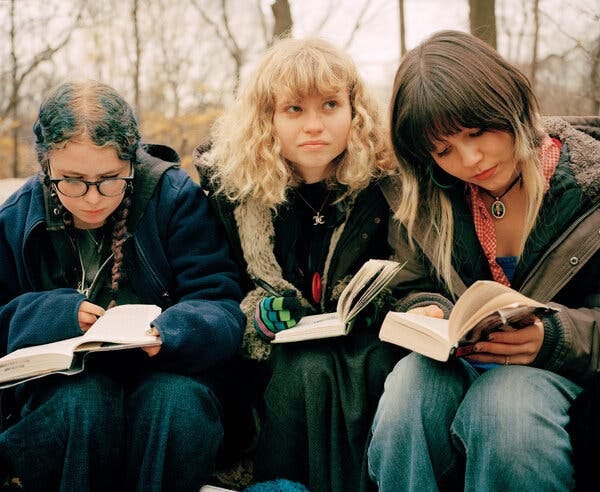When Old Becomes Radical
The art of looking backwards to go forward.
Picture by Scott Rossi for the New York Times
The central objective of this platform is to make the case that a belief in a transcendent reality is not only entirely rational but also consistent with much of what the philosophical and scientific worlds have discovered. Why is this premise not more widely accepted and often even lambasted? As they say, “it’s complicated.”
However, one obvious factor is the decline in the simple awareness of other points of view and the ubiquitous, unnerving, and addictive time-suck afforded us all by the new media reality. It is tough to honestly contemplate the meaning of existence in the face of the permanent barrage of feeds to scroll through and “friends” to react to.
In one of the episodes of the remake of Battlestar Galactica, a ship’s commander explained that in order to fight the advanced technology of their arch-enemies, the Cylons, the Galactica looked backward to older and less sophisticated systems to confound and stymie their opponents. So too, there are benefits to abandoning the (admittedly incredible) technology we have in order to save our minds from techno-slavery and prevent us from ever exploring life’s big questions.
Thankfully, there is now evidence that the tiny shoots of resistance have broken through to the surface. In one personal example, our local Verizon rep was visibly shocked when my teenage daughter asked to exchange her fancy iPhone for a simple “dumb” phone (we had to explain it to him a couple of times for it to sink in). The net result was that she went from a very average student to one who aced college with a 3.9 average.
She is not alone. There is a remarkable piece in the New York Times this week entitled ‘Luddite’ Teens Don’t Want Your Likes. It seems as though some young folks in Brooklyn have also jumped off the media train. They meet in Prospect Park where, as noted in the article, “Some drew in sketchbooks. Others painted with a watercolor kit. One of them closed their eyes to listen to the wind. Many read intently — the books in their satchels included Dostoevsky’s “Crime and Punishment,” Art Spiegelman’s “Maus II” and “The Consolation of Philosophy” by Boethius.”
Senior Lola Shub said, “When I got my flip phone, things instantly changed. I started using my brain. It made me observe myself as a person.” I find this intensely inspiring, and I consider these kids heroic.
How much would it be worth to discover your full potential? What crucial thinking might we all be capable of, and what would you be willing to do to get it?
Would it be worth ditching our phones?



